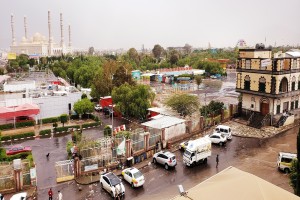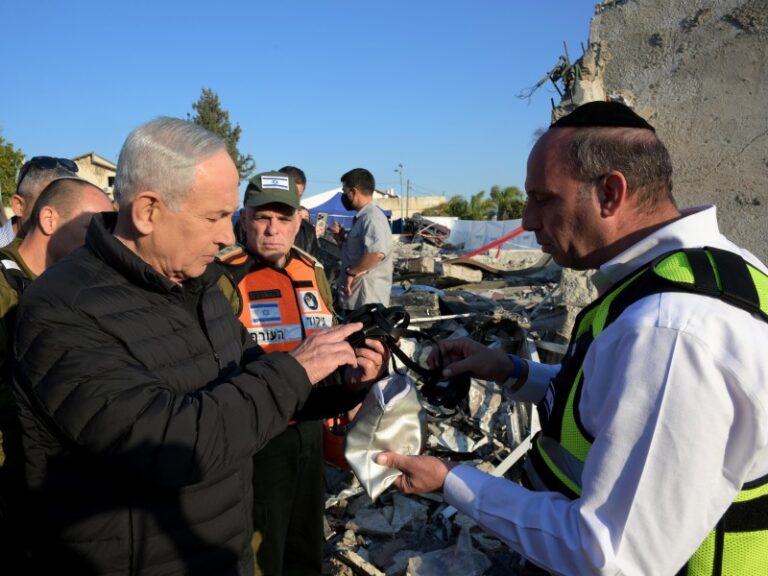
Sana’a city, Yemen
UNSC should press urgently for a comprehensive political settlement in Yemen, says India
New York: The United States’ decision on 10 January to designate the Houthi militia as a foreign terrorist organisation risks accelerating Yemen’s slide into large-scale famine. United States Secretary of State Michael R. Pompeo had announced the designation of Ansar Allah — as the Houthis are formally known — as a foreign terrorist organisation due to its actions.
Painting a grim picture of the looming consequences, David Beasley, Executive Director of the United Nations World Food Programme (WFP), told the United Nations Security Council on January 14, 2021 that “The designation is going to be a death sentence to hundreds and thousands if not millions.” While Washington, D.C., provided $3.7 billion of support in 2020, this designation needs to be reassessed, reevaluated and reversed, as it will force 80 per cent of the population — 24 million people — into severe hunger, he said.
He said without the designation, famine looms, with 11 million already in crisis and 5 million at an emergency level. To stave off famine, at least $1.9 billion is needed for 2021, as only $386 million in confirmed contributions have been received and, for the next six months alone, $860 million is required. The shortage means 9 million people now receive half-rations, and without required assistance, starting in February, only quarter-rations can be provided.
Beasley stressed that unless this designation was reversed, the turmoil would be coming soon, including rising risks for humanitarian workers. “If 80 per cent of the people in your city did not have access to food and saw a WFP truck driving through their neighbourhood, what do you think will happen?” he asked, cautioning that aid workers will face grave dangers and risks. “I pray this Council and leaders will step in and do what is right.”
The United Nations has called the situation in Yemen, the world’s worst humanitarian crisis.
Martin Griffiths, the United Nations Special Envoy for Yemen, told the 15-member Council that he was extremely concerned about the impact of the United States’ decision to designate Ansar Allah as a foreign terrorist organisation, which was liable to have a chilling effect on his efforts to bring the parties together.
At the same time, Griffiths also informed the UNSC members that earlier on January 14, a Government investigation concluded that Ansar Allah was behind the guided missile attack on December 30, 2020 on Aden’s civilian airport which targeted Yemen’s newly formed Cabinet — a product of 2019 Riyadh Agreement between the legitimate Government and the Southern Transitional Council — as it arrived from Saudi Arabia to take up its responsibilities. However, he said, the group had denied any involvement in the Aden attack — which left dozens of civilians dead or injured.
Several UNSC members called for an independent investigation into the attack during the January 14 meeting.
“The Aden attack cast a dark shadow over what should have been a moment of hope,” Griffiths said.He added that in any event, he remains committed to engage with all parties, including Ansar Allah, “designated or not”, to end the conflict.
“The path to peace in Yemen was never easy, and I believe that it is now a great deal more difficult than a month ago — but there is a way out,” he said. While the two parties agreed in principle to a nationwide ceasefire, differences persist on such issues as civil service salaries and the reopening of Hodeida harbour for imports and Sana’a airport for international flights. Going forward, the focus must remain on an inclusive political process that ends the conflict. “It is the way the war ends, and thus for the parties, resuming the political process is more than an obligation — it is a duty,” he said.
Mark Lowcock, United Nations Under-Secretary-General for Humanitarian Affairs and Emergency Relief Coordinator, said that the most urgent priority in Yemen right now is to prevent a massive famine. Sixteen million Yemenis are poised to go hungry this year, and about 50,000 already find themselves in the midst of a small famine, he said, adding: “Every decision the world makes right now must take this into account.” Noting that the United States’ decision to designate Allah Ansar as a foreign terrorist organisation will take effect on 17 January, he summarised the reasons why humanitarian actors oppose such a development, including the fact that Yemen imports 90 per cent of its food — with nearly all that food entering through commercial channels that aid agencies cannot replace.
“Already, Yemenis are crowding into markets and shops to stockpile whatever they can afford,” with families terrified that no more food will enter the country, he said. For years, commercial actors — such as suppliers, transport companies and banks — have moved mountains to sustain highly risk-averse supply chains, but now some are saying the risk is too high. They also fear getting caught up in United States regulatory action that could put them out of business or in jail. The United States says that it will introduce licences to allow some humanitarian aid and imports to continue, but those licences do not yet exist, nor will it solve the problem, given that humanitarian agencies do not import most of Yemen’s food.
He went on to report that humanitarian access problems in Government-held areas have gotten worse in recent months, with warehouse break-ins, the detention of aid workers, the seizure of relief items and attacks on humanitarian premises. Funding remains a serious concern, he added, recalling that the $1.7 billion received in 2020 for the United Nations humanitarian response plan was only half of what was needed, due mostly to a reduction of contributions from Gulf countries. The 2021 response to be unveiled in February will probably call once again for $3.4 billion, he said, urging donors to be generous in their pledges and to disperse funds quickly. Returning to the United States’ designation of Allah Ansar, he said that he is not questioning the intent of the decision. However, he emphasized that its likely humanitarian impact will be a “a large-scale famine on a scale that we have not seen for nearly 40 years”. Licences and exemptions for aid agencies will not prevent that, but a reversal of the decision will, he stated.
According to David Beasley, the current situation in Yemen was a man-made problem and it could be solved. He called upon the Gulf States to cover the costs for resolving the problem in Yemen. “If not, the ripple effect will mean famine will spread to other countries,” he warned. He appealed to the Council and leaders around the world to put pressure on actors in the conflict and ensure required funding needs for assistance are met. “If we can’t solve this, shame on us; the people of Yemen depend on us,” he said.
In the ensuing discussion, Council members condemned the Aden attack and renewed calls for an immediate ceasefire, insisting that there can be no military solution to the conflict. Many delegates questioned the United States’ decision to designate the Houthi as a terrorist group, but the USA’s representative defended the move, which the Minister for Foreign Affairs and Expatriates of Yemen — participating via video-teleconference from Aden — roundly supported. Recognising concerns that the designation will affect the humanitarian situation, the US representative said efforts were being made to reduce the impact, and Washington, D.C., was continuing a dialogue with non-governmental organisations and other actors alongside initiatives to ensure that official activities of such international organisations as the United Nations would continue. The views of everyone in this Council and briefers will be considered, he said, noting that “we are listening.”
India’s representative, recalling his country’s centuries-old relationship with Yemen, said that the Council should press urgently for a sustainable and comprehensive political settlement. In that regard, he reaffirmed India’s commitment to a Yemeni-led and Yemeni-owned political process and urged all Yemeni parties to work towards an inclusive negotiated agreement. He also encouraged all parties to explore such confidence-building steps as prisoner exchanges and a halt to violence. He went on to acknowledge the key role of a unified Gulf Cooperation Council in promoting peace, stability and prosperity in Yemen, following the recent rapprochement among its member States.
– global bihari bureau





